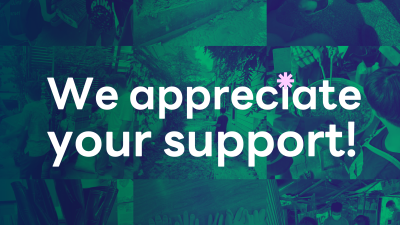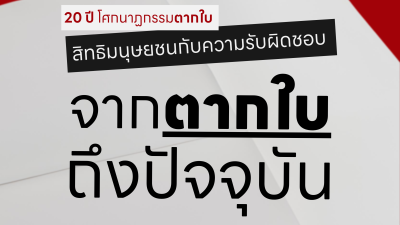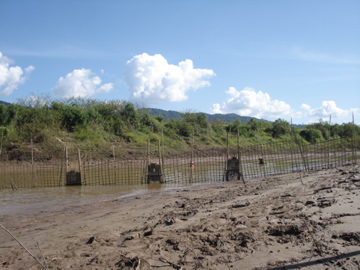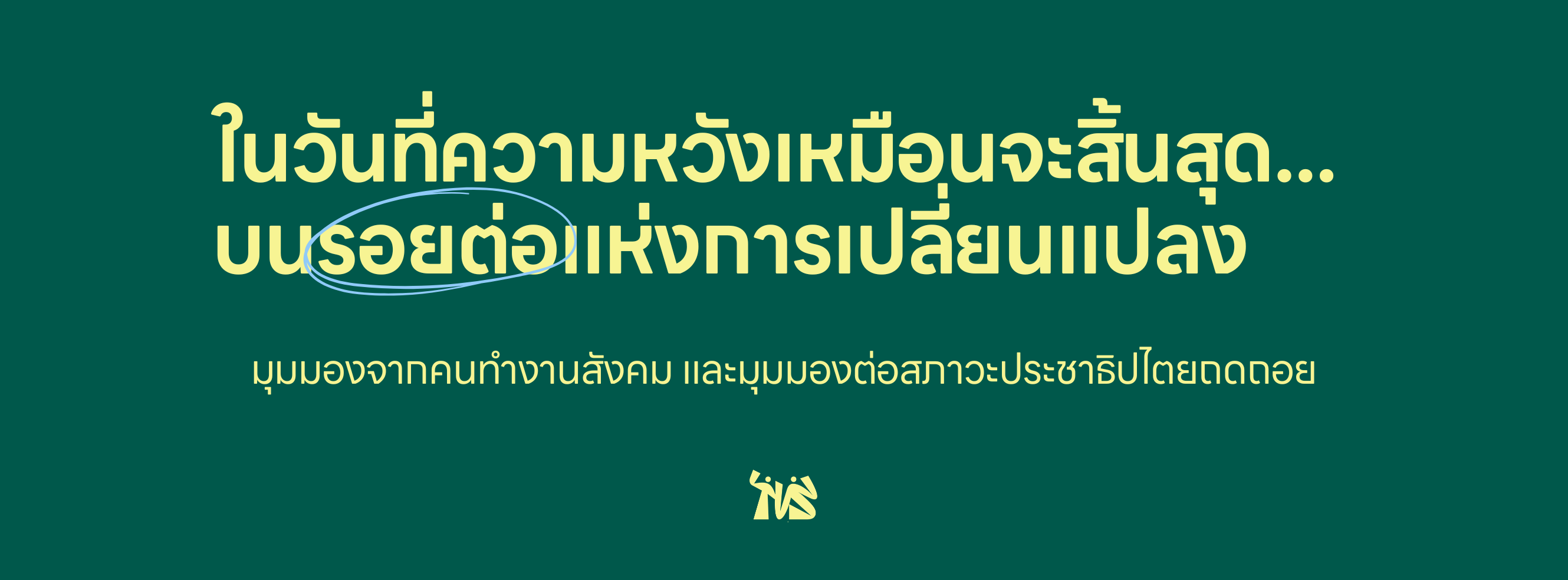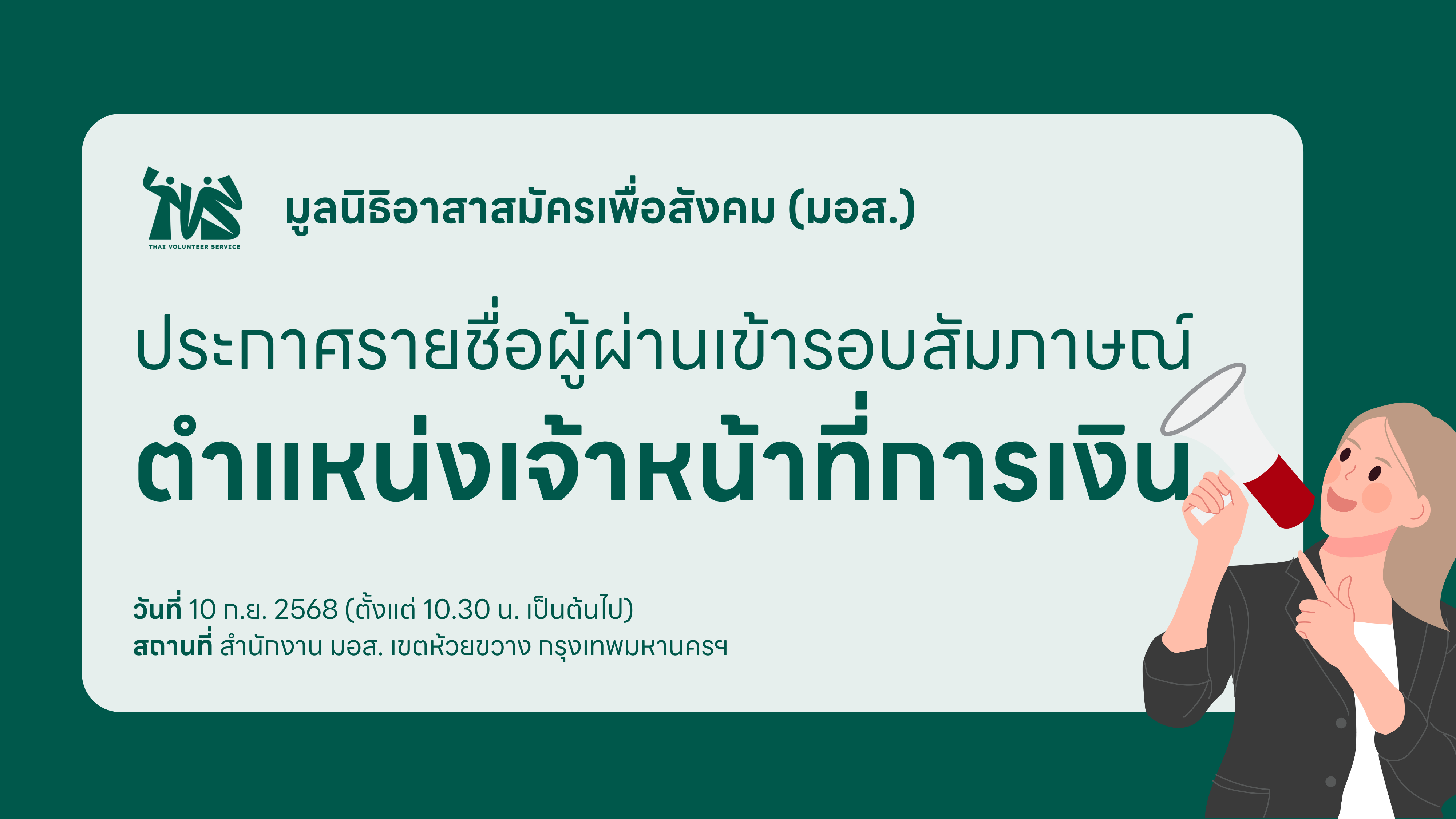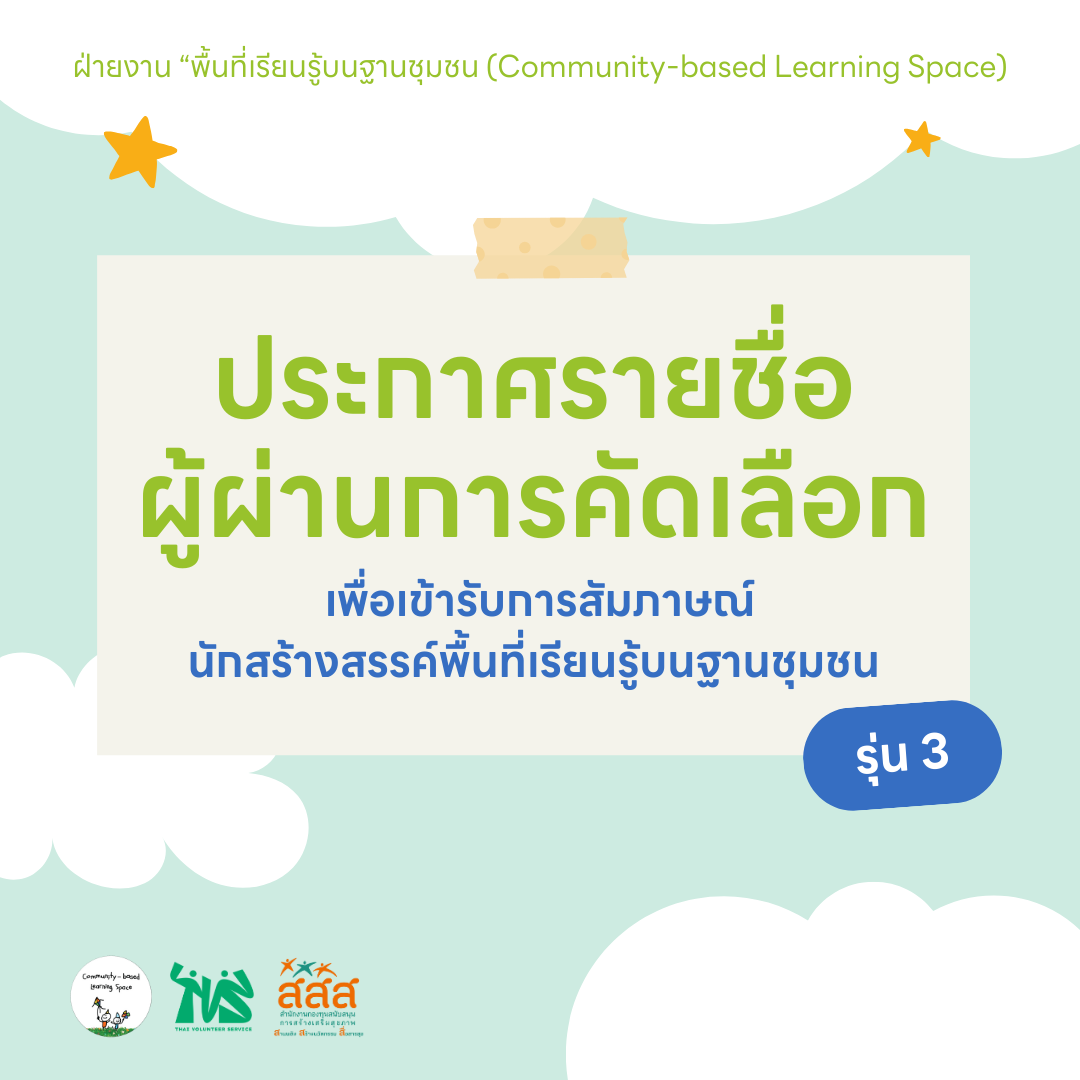Young Environmentalists Join Together to Save the Mekong
March 13, 2010
Can Tho, Vietnam
The governments of Cambodia, Laos and Thailand are planning eleven large hydropower dams on the Mekong River’s mainstream. If built, the dams would block major fish migrations and disrupt this vitally important river, placing at risk millions of people who depend upon the Mekong for their food security and income.
As the Mekong flows through six countries, it’s vital for citizens of all six countries to build understanding and work together. This is exactly what is happening among a new generation of Mekong activists.
Over the past week, thirty young environmentalists representing communities from the source of the Mekong in Tibet to the mouth of the river in Vietnam’s Mekong Delta gathered in the delta’s capital city of Can Tho to meet with local academics and community members and discuss plans to work together to save the Mekong.
Tanasak Phosrikun of Ubon Ratchathani in Northeastern Thailand explained, “We are the new generation of Mekong activists. We need to cooperate with one another more than current and past leaders have done.”
A young Tibetan environmentalist traveled from the upper reaches of the Mekong to join the group in the Mekong Delta. “When you learn to understand others’ perspectives, that is when you find a solution,” she said.
China’s dam construction on the Upper Mekong mainstream (Lancang) has already caused serious environmental problems on downstream Burma, northern Thailand and northern Lao PDR. With the Mekong River at its lowest level in fifty years, the citizens of downstream communities are increasingly concerned.
Traveling by boat through the delta’s vast waterways, Chinese environmentalist Jia Jia reflected, “If fish and water can cross borders, why can’t our love? I’ve always felt proud to be Chinese. But now, when I see the effects of Chinese projects, I feel guilty.”
Yiling, graduate student from Kunming, agreed. “Together we can save the Mekong. Instead of arguing amongst ourselves, we should take this opportunity to have a constructive dialogue.
Environmental researcher Thepvayha from Vientiane, Laos added, “The people of China, Burma, Laos, Thailand, Cambodia and Vietnam are brothers and sisters; we have the same mother. We shall work together to protect her, and ensure she flows freely.”
After spending an afternoon with fishing and farming families along the Mekong Delta, the group was impressed with the abundance of natural resources and the sustainability of livelihoods well-balanced with the local environment.
Chunshan Zhang, is a community leader from the Pumi ethnic group in Yunnan’s upper Mekong watershed. “Many countries have traded their natural resources for luxuries, which has brought about serious threats to our survival. If we continue to go down this road, we will face serious dangers.”
One environmentalist from Burma who wished to remain anonymous added, “Nature gives us enough to survive. If we demand too much, where is the future for our next generation?”
Cambodian environmentalist Sarorn said, “Communities along the Mekong don’t know what’s happening, especially in Cambodia. Everything’s changing, but people don’t understand why. We need to raise awareness. Communities should pressure the MRC (Mekong River Commission) to address their concerns.”
Cambodian lawyer Nov Piseth added “Safeguard standards for dam developers must be legally enforced to eliminate negative impacts. There must be meaningful engagement with communities already suffering the effects of large dams.”
The Mekong River supports one of the world’s most productive inland fisheries, which feeds over sixty million people. Official estimates put its value at more than US$3 billion annually.
“He who steals my milk will have to face me,” added Chunshan Zhang. “The free flowing river has raised me; she is my mother.”
Ly Quoc Dang from of Soc Trang province in the Mekong Delta said, “Our Mekong communities drink the same water, and we want to continue eating the same fish.”
The group hopes their work will inspire citizens throughout the Mekong region to reflect on the livelihoods of future generations in the spirit of March 14, the International Day of Action against Dams.
(Thai Version)
แถลงการณ์
นักสิ่งแวดล้อมรวมตัวกันเพื่อ ปกป้องแม่นำ้โขง
13 มีนาคม 2553
ณ เมืองกังเทอ ประเทศเวียดนาม
นักกิจกรรม-นักสิ่งแวดล้อมรุ่นใหม่จากประเทศลุ่มแม่นำ้โขง รวมตัวกันเพื่อปกป้องแม่นำ้โขง เมื่อวันที่ 13 มีนาคม 2010 เมืองกังเทอ ประเทศเวียดนาม รัฐบาลของประเทศกัมพูชา ลาว และไทย กำลังวางแผนสร้างเขื่อนผลิตไฟฟ้าขนาดใหญ่ 11 เขื่อน ในแม่นำ้โขงสายหลัก หากมีการสร้างเขื่อนเหล่านี้ขึ้น จะเป็นการปิดกั้นเส้นเดินทางของปลา ทั้งยังกระทบแม่นำ้สายหลักที่มีความสำคัญอย่างยิ่ง ทำให้ประชาชนหลายล้านคนที่พึ่งพาแม่นำ้โขงหลายล้านคนสูญเสียความ มั่นคงด้านอาหาร และรายได้
ตลอดสัปดาห์ที่ผ่านมา นักสิ่งแวดล้อมรุ่นใหม่จำนวนกว่า 30 คน ซึ่งเป็นตัวแทนชุมชน จากต้นทางแม่นำ้โขงจนถึงปากแม่นำ้โขงในประเทศเวียดนาม ได้มารวมตัวกันที่เมืองหลวงของดินแดนปากแม่นำ้โขง เมืองกันเทิง เพื่อพบปะแลกเปลี่ยนกับนักวิชาการ และชาวบ้าน เกี่ยวกับแผนการทำงานร่วมกันเพื่อปกป้องแม่นำ้โขง
ธนะศักดิ์ โพธิ์ศรีคุณ เยาวชนจากจังหวัดอุบลราชธานี ภาคตะวันออกเฉียงเหนือ (อีสาน) ของไทย กล่าวว่า “พวกเราคือนักกิจกรรมรุ่นใหม่เพื่อแม่นำ้โขง เราจำเป็นต้องร่วมมือกันทำงานให้มากกว่าผู้นำในปัจจุบััน และในอดีต“
นักสิ่งแวดล้อมสาวชาวธิเบต เดินทางมาจากหมู่บ้านที่ตั้งอยู่บริเวณต้นกำเนิดแม่นำ้โขง เพื่อเข้าร่วมการประชุมครั้งนี้ กล่าวว่า “เมื่อคุณเรียน รู้ที่จะเข้าใจทัศนะและมุมมองของผู้อื่น เมื่อนั้นเราก็จะสามารถหาทางออกให้กับปัญหานั้นๆ ได้“
การที่ประเทศจีนสร้างเขื่อนบนแม่นำ้โขงสายหลักตอนบน (แม่นำ้ล้านช้าง) ได้ ส่งผลกระทบอย่างรุนแรงต่อสิ่ง แวดล้อมในประเทศพม่า ภาคเหนือของไทยและภาคเหนือของลาว ณ ขณะนี้ ระดับนำ้ในแม่นำ้โขงลดลงถึงระดับตำ่สุดในรอบ 50 ปี ประชาชนของชุมชนลุ่มนำ้โขงยิ่งกังวลใจมากยิ่งขึ้น
ในขณะที่เดินทางล่องเรือผ่านแม่นำ้สาขาหลายสายในพื้นที่ปาก แม่นำ้โขงในเวียดนาม นักสิ่งแวดล้อมสาวชาวจีน เจีย เจีย ให้ความเห็นว่า “ถ้า หากน้ำและปลา สามารถข้ามพรมแดนได้ ทำไมความรักของคนเราจึงไม่สามารถทำได้เช่นเดียวกัน ตลอดเวลาที่ผ่านมา ฉันภูมิใจเสมอที่ได้เกิดมาเป็นคนจีน แต่ทุกวันนี้ ฉันได้เห็นผลกระทบจากโครงการเขื่อนในจีน ฉันรู้สึกผิด“
อี้ลิง นักศึกษาจีน จากคุนหมิง เห็นด้วยว่า “ถ้า เราร่วมมือกัน เราจะสามารถปกป้องแม่นำ้โขงได้ แทนที่จะทะเลาะถกเถียงกัน เราควรจะถือโอกาสนี้ สร้างวงปรึกษาหารือกันอย่างสร้างสรรค์
นักวิจัยด้านสิ่งแวดล้อม เทพเวหา จากนครเวียงจันทน์ เสริมในประเด็นนี้ว่า “ประชาชน ชาวจีน พม่า ลาว ไทย เขมร และเวียดนาม เราต่างเป็นพื่น้องกัน เรามีแม่คนเดียวกันคือแม่นำ้โขง เราจะทำงานร่วมกัน เพื่อให้แม่นำ้ไหลอย่างเสรี“
หลัง จากใช้เวลา หนึ่งวัน กับชาวประมงและชาวสวนที่อยู่ปากแม่นำ้โขง กลุ่มนักกิจกรรม นักสิ่งแวดล้อมทุกคนต่างรู้สึกประทับใจกับทรัพยากรธรรมชาติที่ อุดมสมบูรณ์ และวิถีชีวิตที่ยั่งยืน และสมดุลกับสิ่งแวดล้อมของชาวบ้านชุมชนท้องถิ่นที่นี่
ชุน ชันจัง หัวหน้าชุมชน ชนเผ่าภูมีในลุ่มนำ้ตอนบนของแม่นำ้โขง มณฑลยูนนาน “ประเทศ หลายประเทศ ได้แลกทรัพยากรธรรมชาติไปเพื่อผลิตสินค้าฟุ่มเฟือย ซึ่งส่งผลกระทบต่อความอยู่รอดของมนุษย์ ถ้าเราเลือกเส้นทางนี้ เราจะเผชิญหน้ากับความเสี่ยงอย่างมหันต์“
นักสิ่งแวดล้อมชาวพม่าคนหนึ่ง กล่าวเห็นด้วยว่า “สิ่งที่ธรรมชาติ ให้เราทุกคนมา มีอยู่อย่างพออยู่พอกิน ถ้าหากเราเรียกร้องมากเกินไป อนาคตของลูกหลายต่อไปจะเป็นอย่างไร“
นักสิ่งแวดล้อมชาวเขมร ซารอน กล่าวว่า “ชุมชน ที่อยู่ อาศััยตลอดลำน้ำโขง พวกเขาไม่รู้ว่าอะไรกำลังจะเกิดขึ้น โดยเฉพาะในประเทศกัมพูชา ทุกอย่างกำลังจะเปลี่ยนแปลง แต่ชาวบ้านไม่เข้าใจว่านั่นเป็นเพราะสาเหตุใด พวกเราจึงต้องสร้างความตระหนัก พลเมืองควรจะร่วมกันผลักดันคณะกรรมาธิการแม่นำ้โขง หรือเอ็มอาร์ซี เพื่อที่จะรับผิดชอบกับความกังวลเหล่านี้ด้วย“
ทนายความชาวเขมร เนอว พิเสธ เสริมต่อว่า “มาตรฐาน การ ป้องกันในการสร้างเขื่อน ต้องมีการบังคับใช้อย่างถูกต้องตามกฎหมาย เพื่อหลีกเลี่ยงผลกระทบ และต้องมีการพูดคุยให้ความรู้กับชุมชนที่ได้รับผลกระทบแล้วจาก เขื่อนขนาดใหญ่“
แม่นำ้โขง เป็นแหล่งที่คนหาปลานำ้จืดได้มากที่สุดในโลกแห่งหนึ่ง ซึ่งเลี้ยงชีวิตผู้คนมากกว่า 60 ล้านคน ผลประเมินอย่างเป็นทางการสรุปได้ว่า มูลค่าที่ได้จากการหาปลา มากกว่า 3 พันล้านดอลล่าร์สหรัฐต่อปี หรือราว 9.6 หมื่นล้านบาทต่อปี“
“หากใครก็ตามมาขโมยน้ำนมของผม คงต้องเจอดี” ชุน ชันจัง กล่าวพร้อมทั้งเสริมว่า “แม่นำ้ที่ไหล อย่างอิสระหล่อเลี้ยงชีวิตของผมมา เธอคือแม่ของผม“
ลี ก๊ก ดั๋ง จากจังหวัดซกจัง ดินแดนสามเหลี่ยมปากนำ้โขง ประเทศเวียดนาม กล่าวว่า “ชุมชนแม่นำ้โขง ของเราต่างดื่มกินจากนำ้สายเดียวกัน และเราต่างก็ต้องการกินปลาจากนำ้เดียวกันต่อไป“
กลุ่ม นักกิจกรรมและนักสิ่งแวดล้อมรุ่นใหม่แห่งแม่นำ้โขง หวังเป็นอย่างย่ิงว่า การทำงานของพวกเขาจะเป็นกำลังใจแก่คนทั่วทั้งภูมิภาคลุ่มนำ้โขง ใหระลึกถึงความเป็นอยู่ วิถีชีวิตของคนรุ่นต่อไป เนื่องในวันต่อต้านเขื่อนโลก วันที่ 14 มีนาคมนี้.
โรงเรียนแม่นำ้ โขง

